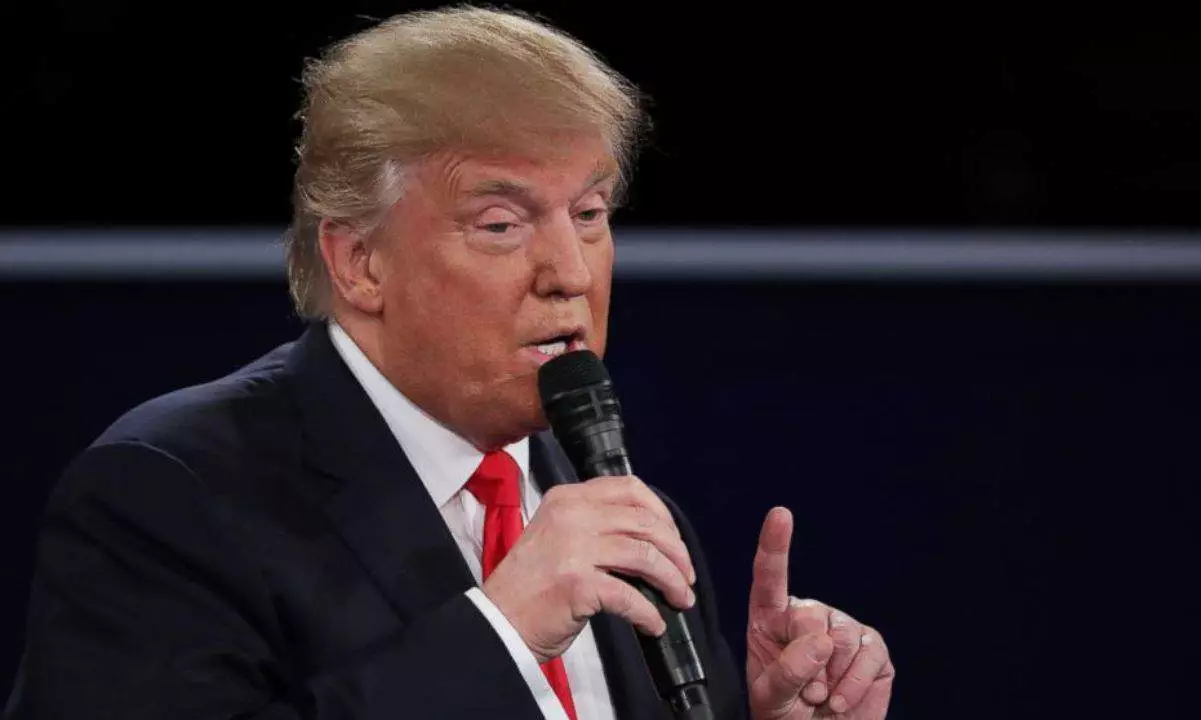In a bold and unexpected maneuver, President Donald Trump recently issued pardons to the founders of the Seychelles-based cryptocurrency exchange BitMEX. This unprecedented act not only marks a significant break from political norms but also positions Trump as a catalytic figure in the evolving landscape of digital currencies. The pardons came on the heels of BitMEX’s guilty plea to money laundering violations, leading many to wonder whether the president is subtly aligning himself with a burgeoning crypto community while igniting discussions on the broader implications of such decisions.
BitMEX’s operations have been pivotal in shaping the cryptocurrency ecosystem since its inception in 2014. It has drawn vast attention for facilitating leveraged trading, which appeals to a specific type of investor looking for higher risks and potential rewards. However, this appeal comes with substantial scrutiny from regulators, as evidenced by the hefty fines and probation terms imposed earlier by the U.S. Department of Justice. By pardoning a company facing such serious charges, Trump seems to be sending not only a personal message to his supporters but also a broader signal to the financial world that he might be willing to challenge antiquated regulatory frameworks in favor of innovation.
Political Ramifications and Speculations
The political implications of Trump’s pardons unfold against a backdrop of deep skepticism among politicians regarding the cryptocurrency sector. Trump’s actions have ignited debates about the motivations behind such clemency and whether it could pave the way for future pardons of other notable crypto figures, such as FTX founder Sam Bankman-Fried or Binance’s Changpeng Zhao. These speculations swirl around the potential outcomes of Trump’s apparent pivot towards libertarian principles, particularly as he campaigns for reelection.
Interestingly, these pardons align with a broader interpretation of justice that emphasizes individual rights and personal autonomy, core tenets of right-leaning liberalism. However, they also risk reinforcing a narrative of favoritism within the political sphere, where financial influence can foster selective justice. It raises the critical question of whether pardoning alleged offenders, particularly in the notoriously volatile crypto space, diminishes the seriousness of actual financial crimes or instead highlights flaws in regulatory approaches.
The Reaction from the Crypto Community
Trump’s pardons have stirred mixed reactions across the cryptocurrency community. On one hand, they are celebrated by some as a recognition of the unjust nature of the previous charges levied against BitMEX; on the other, they have sparked legitimate concerns about legal repercussions and ethical governance within the crypto arena. Arthur Hayes, the exchange’s founder, extolled the pardons as a vindication, asserting that prior regulatory actions were politically motivated and misconstrued. This sentiment echoes throughout the marketplace, where many perceive BitMEX as a scapegoat during an era of increased regulatory scrutiny.
Moreover, the eagerness with which Hayes and his peers praised Trump signals a potential shift in the crypto community’s allegiance. Traditionally supportive of progressive policies, could this new wave of pardons accelerate a shift towards conservative tenets within the digital finance realm? The growing appeal of Trump’s rhetoric towards those who once predominantly viewed him with skepticism is certainly worth noting.
The Underlying Economics of Trump’s Decisions
Pardons may seem like political theater, but they often have profound economic reverberations. In pardoning BitMEX’s co-founders, Trump taps into a vast wealth of financial resources and influence that exist within the crypto industry. This industry is not merely a playground for tech enthusiasts; it encompasses the financial futures and investments of millions across the globe. The potential normalization of crypto through influential presidential pardons could signal an impending phase of mainstream acceptance that warrants further exploration from policymakers.
This dynamic is heightened by ongoing conversations around taxation and regulatory frameworks, which have often lagged behind rapid technological developments. Trump’s embrace of cryptocurrency via these pardons suggests a further clash between traditional financial institutions and the decentralized ethos championed by the crypto community. The potential for a market to thrive on less restrictive conditions could result from these decisions, but it also runs risks of exacerbating the volatility that has caused financial anguish for many investors.
The Future of Pardons in the Cryptocurrency Landscape
As discussions about clemency expand, the possibility of Trump extending his pardoning power to other significant figures within the crypto sphere continues to raise eyebrows. Speculating on future pardons, individuals like FTX’s Sam Bankman-Fried or the controversial Roger Ver point towards a landscape in which the interplay of politics and finance could redefine what regulation looks like in practice.
This entire episode exemplifies the chaotic yet exciting environment of the cryptocurrency sphere, where fortunes can change overnight alongside the regulatory climate. Trump’s recent decisions appear to be merely the tip of the iceberg in terms of how he and others might approach the intersection of law, finance, and political maneuvering in the coming years. The onus will be on the crypto community to navigate this new terrain carefully as the stakes have never been higher.
















Leave a Reply